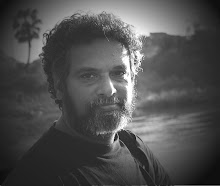Paattabakki at Natakakalam-2009, an Alternate Theatre Festival

The district library council of Eranakulam is organizing a national theatre festival, a 21 day production and playwriting workshop and a week long theatre seminar named as Natakakalam 2009, in memory of the late playwright- actor -director Bharath PJ Antony.
This festival is intended to showcase the Alternate theatre movement in the state that reflects the social realities of the current
The concluding play is Pattabakki, the first political play in Malayalam written by K.Damodaran in 1936, designed and directed by Chandradasan, produced by Lokadharmi.
Pattabakki (The lease balance)
As early as in 1936 when the political arena in Kerala was becoming more and more tense with the peasant landlord antagonism and anti-British movement, the ideological intellectualism of the middle class was struggling to find strategies of containment in various fields of creative activity. The age-old concept of a coercive aesthetics of "divine bliss" and the appropriation of the cultural life and elemental human experience of the majority came to have little significance in the newly evolved performance praxis which clearly was being determined by the social contradictions of the times. Here, art and performance became a highly conscious and rational social activity for the new playwrights who were basically social reformers first and foremost. The shaping spirit of this newly emerged theatre practice with an aggressive aesthetic and performance orientation gave birth to another genre totally new to Malayalam theatre which found its expression in K. Damodaran's Pattabakki (1936). Considered as the first political play in Malayalam, Pattabakki rooted itself in the anti-feudal consciousness of the people, which was getting manifested in the struggles of the peasants against feudal landlordism supported by the British regime. A new structure of human experience, determined, by the socio-political reality undertook the task of vehemently challenging the hegemonic ideology of the times. This new performance pattern which was basically realistic reached every nook and corner of Kerala to establish a lasting effect upon the future developments in the radical theatre practice of Kerala.
Thus, it can be surmised that with K. Damodaran's Pattabakki Malayalam theatre practice came of age in 1937 and the subsequent developments in Kerala theatre very clearly indicates the class-contradictions embedded at the core of the fast changing social formations
Structure wise also the play is interesting. At one level it has a documentary nature that episodically builds up. The different scenes are charged with emotions but the story develops between each scenes. The play has 14 scenes that take place in verandah of a small and decaying hut, a small teashop in the town, the house of the landlord, a street, a small shop, and police station, the office room of the barn of the landlord, under a tree in a street, a prostitution house, and a jail. The locales of scenes suggest the locales where political and social power is operated. The play is written in the realistic style but it is not the naturalism but a suggestive realism is suited for this work. The earlier productions of this play has been on the realistic melodramatic overtones and was over projecting the emotional content of the radical political stands of the play making it a simplistic sloganistic piece. It is noteworthy that the play did not give a direct answer to the problems it raises but ends in open. When asked what to be done o face such grave exploitation the central character just say that ‘I will tell you”
A Brechtian approach in a didactic and open structure will make the play a new experience. The episodical narrative is addressing the audience directly and mostly talks to them enhancing the dialectical nature of this play. The play is presented in an open space where each of the scenes are arranged in different spaces with suggestive realistic set pieces and props and the audience is made to shift attention from space to space.
The period of this production is set during the 1960s even if the issues raised in this play transcend spaces and time. It is valid as long as the social structure is existing that oppresses the working class people.
Thematically the play speaks about agriculture, the farmer the land owner and the relationships between them and the exploitation. At present even agriculture as a social activity is almost extinct from Kerala life and it will be interesting to enquire the passion with which our farmers worked on the field even under sheer exploitation. It is the sheer social situation that makes the protagonist to thieve and the female lead to opt for prostitution. Theft and prostitution are approached by the playwright not as sin but as the result of social pressure n the oppressed. The presentation of the play in this era will be interesting in this approach to prostitution and thieves and the fake morality that prevails today.
The cast of the play is Sukanya Shaji, Vijayakumar, Govind Nambiar, TS Asha Devi, Ajaikumar Thiruvankulam, N.Somasundaran, Harikrishnan.S, Shirly Somasundaran, Madan Kolavil, MS Raghunadh, Kalamandalam Kesavan, VR Selvaraj, Santhosh Piravam, Damodaran Nambothiri, Prasanth, MR Manikantan, Sanosh Palluruthi, Amar Mohan, Pradeep Chittoor, Shaji Nayarambalam, & Meghanadhan
The technical crew comprises of Jolly Antony (Set), Bijibal (Music),; Shirly Somasundaran, (Costume Design): Anoop Kalarikkal, (Art &Properties),: Pradeep Chittoor (Production In Charge & Make Up), and Gireesh Menon (Lighting)
Pattabakki will be staged on 19th evening at Changampuzha Park Edappally,
Labels: Chandradasan, K Damodaran, Lokadharmi, paattabakki


2 Comments:
Hi Chandra,
Nice that Festival!!!
I would love stay there all day long seeying many different plays...
I like very much, too, alternative theatre moviments...
The text red by the eyes...
It makes me realize all.
Thinking... Felling...
I think the theatre object is express the secret truths, and of course hidden...
My best wishes for you!!!
Deise Puga
oh Deise...
it seems that we agreea a lot mutually... i would love to meet you and talk in person...
Post a Comment
Subscribe to Post Comments [Atom]
<< Home